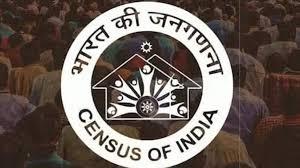
Centre Notifies Launch of Census Exercise for 2027

 :
| Updated On: 17-Jun-2025 @ 2:04 pm
:
| Updated On: 17-Jun-2025 @ 2:04 pmSHARE
The Union Home Ministry has formally announced through a gazette notification that the next Census of India will be conducted in 2027. This notification, issued by Mritunjay Kumar Narayan, the Registrar General and Census Commissioner, invoked powers under Section 3 of the Census Act, 1948. It also supersedes the earlier 2019 notification regarding Census operations, while preserving any actions already taken under that notification.
As per the newly announced plan, the reference date for the Census will be March 1, 2027, across most of India. However, in the Union Territory of Ladakh and the snow-bound, non-synchronous regions of Jammu and Kashmir, Himachal Pradesh, and Uttarakhand, the reference date will be October 1, 2026, at midnight. This accommodation is likely due to weather-related constraints in these regions during March.
Importantly, this will be India’s 16th nationwide Census and the 8th since Independence. It also marks a historic occasion as it will include the first nationwide caste enumeration since 1931, filling a data gap that has persisted for nearly a century.
The Census will be conducted in two distinct phases:
-
Houselisting Operation (HLO): This first phase will involve collecting detailed information about housing conditions, assets, and amenities available to each household.
-
Population Enumeration (PE): In this second phase, data will be gathered on every individual’s demographic, socio-economic, and cultural characteristics. This phase will also include caste enumeration, which has been a politically and socially significant issue in India.
To execute this large-scale operation, approximately 34 lakh enumerators and supervisors, along with 1.3 lakh Census functionaries, will be deployed across the country.
A significant update for the 2027 Census is that it will be fully digital. It will be carried out using mobile applications, which marks a major shift from previous paper-based methodologies. The digital format is expected to enhance efficiency, accuracy, and data handling speed. In addition, there will be a provision for self-enumeration, allowing individuals and households to submit their information independently, likely through an official online platform or app.
In light of increasing concerns about data privacy, the government has assured that robust data security measures will be put in place. These will apply during the collection, transmission, and storage of sensitive data to protect individuals’ personal information.
Union Home Minister Amit Shah reviewed the preparations for the upcoming Census a day before the notification was released. He met with Union Home Secretary Govind Mohan and other senior officials in North Delhi to assess the readiness and infrastructure needed for this massive exercise.
The 2027 Census is being seen as a vital initiative not just for demographic record-keeping but also for shaping future policies on education, employment, social welfare, infrastructure, and representation. It will likely play a major role in determining the allocation of resources and political representation, especially in the context of caste-based data, which has long been demanded by various social and political groups.
In conclusion, the 2027 Census represents a major administrative, technological, and political milestone for India, ushering in digital methods and reintroducing caste enumeration on a national scale.
Contact Us
House. No. : 163, Second Floor Haridev Rd, near Puberun Path, Hatigaon,Guwahati, Assam 781038.
E-mail : assaminkcontact@gmail.com
Contact : +91 8811887662
Enquiry
×
Reporter Login
×